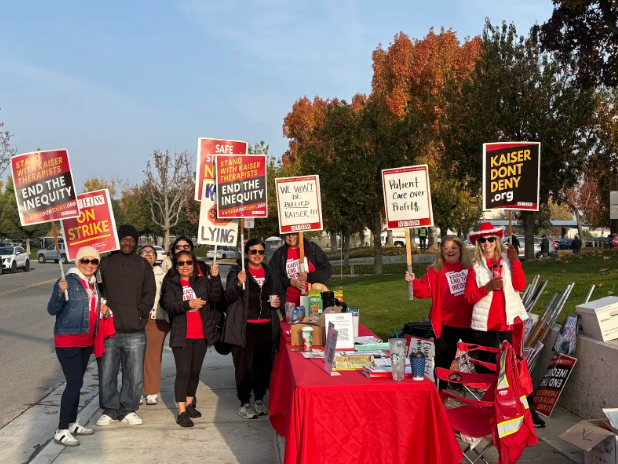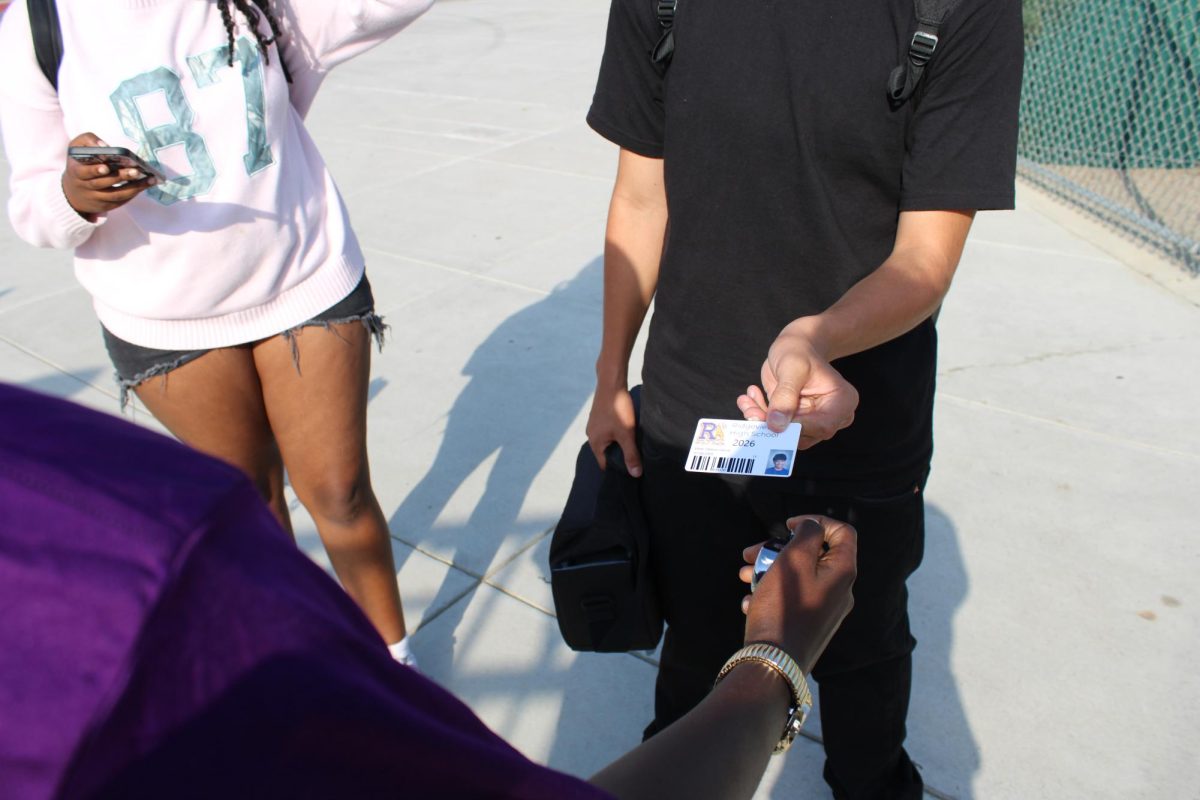On October 21, 2024, several Kaiser Permanente mental health specialized staff in Southern California embarked on the beginning of their strike as Kaiser had delayed meetings and notices with the National Union of Health Workers to begin negotiations for a new contract.
Jessica Rentz, a Licensed Marriage and Family Therapist and a NUHW steward located in Fontana, California, has been on the Union’s bargaining committee for the new contract negotiations and has been a part of the strike since its emergence. Rentz explains, “ Our 4-year NUHW contract with Kaiser was set to expire on September 30, 2024. The contract includes everything associated with fair work practices, wages and retirement benefits. NUHW asked Kaiser to start meeting for bargaining in April of 2024 however, Kaiser refused to start meeting until July 31, 2024.” As a result of both the delayed meetings and no focus on major issues, the health workers of the union voted to go into an open ended strike to fight for what they wanted to change. Fighting for a new contract, the health care professionals have three big issues they are pushing to implement when the time comes to finalize a contract. Rentz explains, “ Improving quality patient care is big; often times, patients are able to be seen for their initial assessment pretty quickly, however, return appointments are often scheduled until 4 to 8 weeks later. We are also requesting more time in our schedules to complete patient care tasks such as completing referrals and reports, consulting with other providers on the treatment team and returning calls. At this time, our counterparts in Northern California have 7 hours of protected time in their schedules a week while in Southern California, we have 4 hours of time in our schedules to complete these care tasks. We are also asking to be paid the same wages Kaiser already pays our counterparts in Northern California. We are asking for no more than what others are already making.” As for progress, Rentz emphasizes there is currently no progress in negotiations and Kaiser is still continuously ignoring the multiple notices to continue bargaining from the union.
Mayra Castro, a Clinical Social Worker and Mental Health Therapist with Kaiser claims the conflict is creating an issue for both patients and workers like her. With several workers on strike, clinics are left short-handed and struggling to keep up with patient care.“Patients wait several weeks to be able to have an appointment with us and then they wait several weeks in between each appointment to be able to meet with us,” Castro expresses. She highlights both the issue of not being paid enough to deal with their workload as well as being paid less than their counterparts. She adds, “We’re asking Kaiser to give us more time. Kaiser does not allocate that time for us. It really is set up an assembly line where we work back to back, 8-10 patients a day with no time in between to prepare for the next session or let alone, use the restroom.”
Angelique Campos, a current student in the tenth grade at Ridgeview, believes this issue should be resolved not only as soon as possible but with their workers and patients in mind. “If Kaiser really prioritized their well-being as a company, they would ensure keeping their workers happy because at the end of the day, when a health care professional has the resources they need to fully provide, then that’s when well-deserved quality mental health care comes in place for those patients,” Campos states. Campos hopes to see change in the way mental health care institutions handle their patients and workers. Campos expresses, “I believe mental health is just as important as physical health and needs to be taken just as seriously. These patients need and deserve quality care as well as workers need to be catered to as they are the one treating these people.”



















